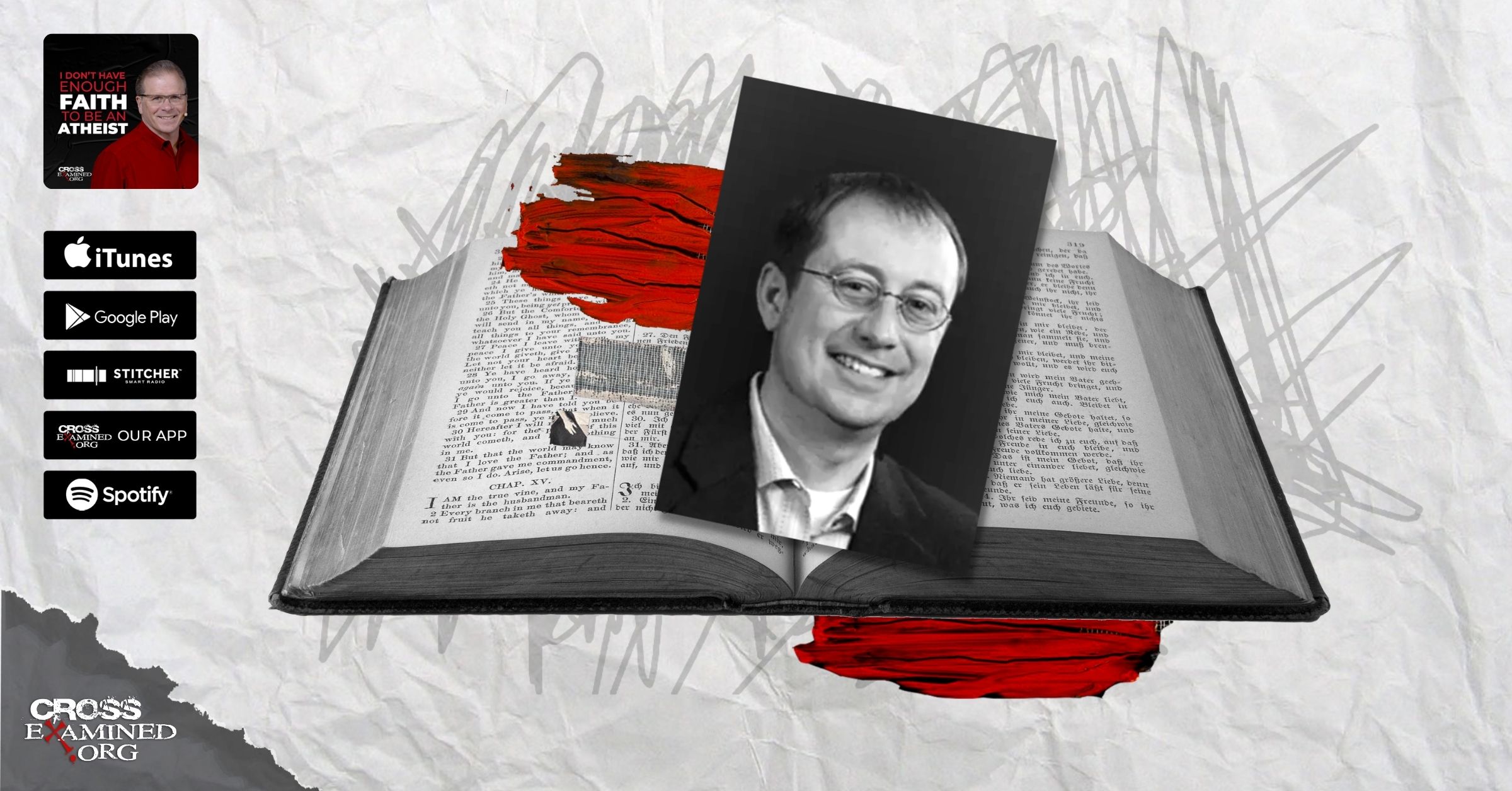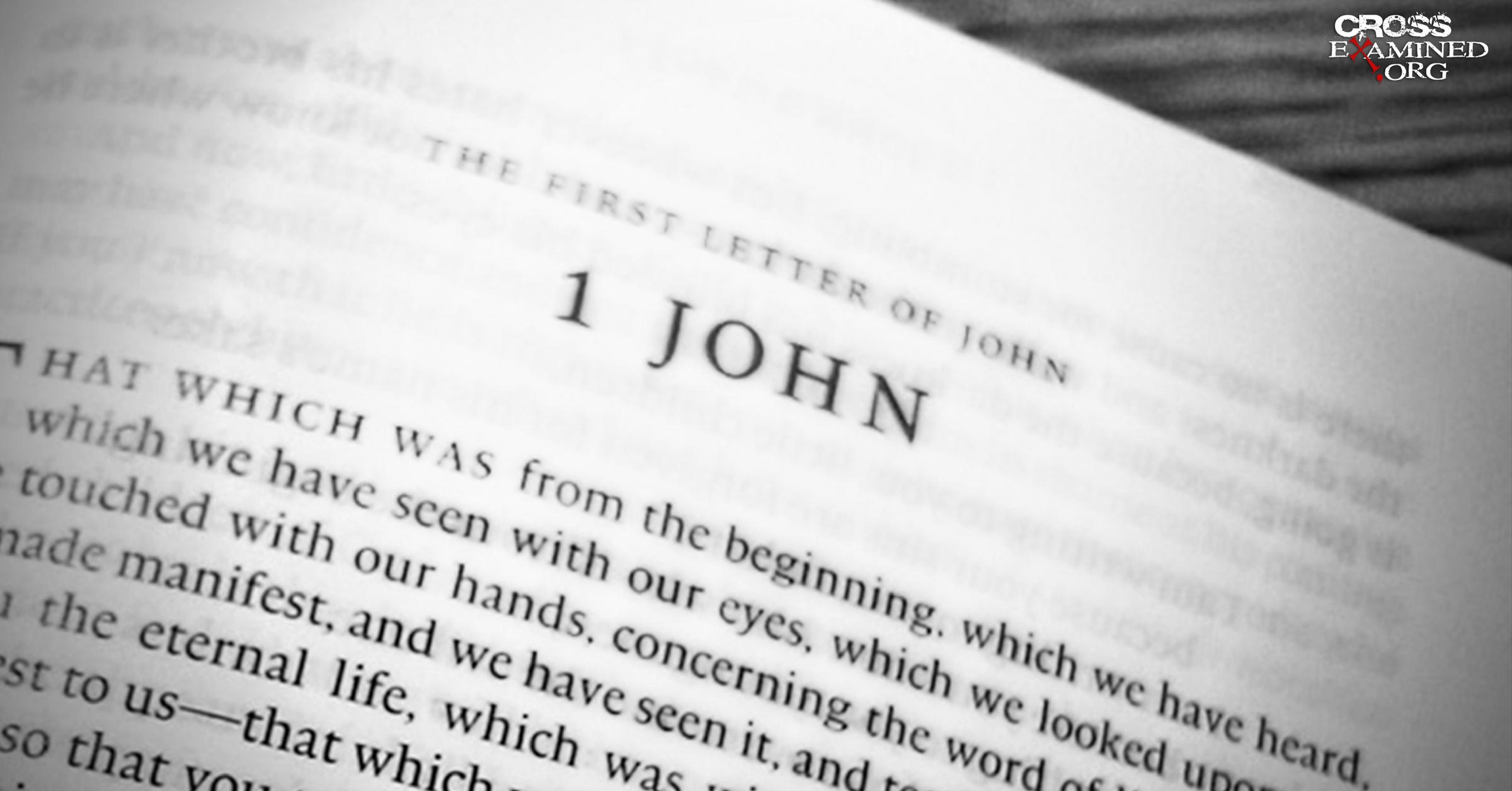Are Today’s Christians Confused About the Gospel?
A few weeks ago, I created a post that said, “I love apologetics but apologetics is not the gospel.” It wasn’t controversial at all. Just kidding. Come on! We’re talking about social media; the breeding ground of controversy.
As a teacher, I often look for the underlying cause of a misunderstanding. I ask myself, “What is the foundational aspect of this message and why didn’t the reader ‘get it’”? With the so-called controversial post about apologetics and the gospel, it became more and more clear that the reader didn’t understand the word “gospel.”
A Simple Question
So, I created a survey that asked, “What is the gospel?” I got a varying degree of answers that included:
- Sharing the gospel is praying for someone.
- Sharing the gospel is sharing my testimony.
- Sharing the gospel is a kind gesture, a hug, or visiting a sick friend.
And just like a quiz tells the teacher what her students know and don’t know, I immediately understood why my post about apologetics not being the gospel became controversial. The reader doesn’t know what the gospel is. The reader is missing this foundational piece of knowledge in order to understand the entirety of the message. Unfortunately, many of the readers call themselves Christians and they cannot define the gospel.
“Preach the gospel at all times, use words if necessary” – Is that true?
There’s a popular quote attributed to St. Frances of Assisi that many Christians like to mic drop in the social media comment section. It is, “Preach the gospel at all times, use words if necessary.” This famous quote has woven its way into sermons from the Church of Christ all the way to the Baptist pulpit, and even the Instagram post of an unsuspecting Christian apologist.
My objective here is to answer “What is the gospel?” and then contemplate whether it’s good advice to, “Preach the gospel at all times, and use words if necessary.” Let’s do that by answering:
- Who said it?
- What is the gospel?
- Is the quote valid?
Who said it?
St. Francis of Assisi never said, “Preach the gospel at all times, and use words if necessary.” It’s not clear who first said it either but we know St. Francis never did. We also know he was a prolific preacher, who used lots of words in his preaching. He did however emphasize the importance of our deeds matching our words. I agree with him there. I’d say that many who love this quote believe it is necessary to live what you preach. After all, don’t we often hear how people won’t go to church because it’s full of hypocrites? Trust me. People care that we practice what we preach.
But are we as the church really preaching the gospel with our lives rather than with our words?
Per George Barna’s American Worldview Inventory (2023), he warns that 64% of Americans claim to be Christians while only 4% have a biblical worldview. In other words, most self-identified Christians are living the popular quote in reverse – claiming the gospel but not living in light of it. Wait. So, what do most Christians think the gospel is? Because per Barna, they’re not living it.
Is the gospel a good deed or kind gesture?
Think about it. If the gospel is a prayer, then Judaism and Islam share the gospel. If the gospel is visiting the sick, then atheists and New Agers share the gospel. If the gospel is a virtue, then anytime someone from any religion displays that virtue, they are sharing the gospel. If that’s the case, we’re starting to sound like Oprah Winfrey when she said all religions and beliefs lead back to God.
But then you have to ask: Does every religion include the gospel? If they do, then the gospel is not exclusive to Christianity, and Christianity is not unique to any other religion. However, if Christianity is the only religion that shares the gospel, it cannot be a virtue because everyone is virtuous to some degree – Christian or not. Moreover, if the gospel is unique to Christianity, it cannot be prayer. It cannot be encouragement or kindness or love because you can find all of those things embedded in other people’s actions in all sorts of religions and belief systems.
No, the gospel cannot be merely a good deed. The gospel must be something more.
What is the gospel?
Do you want the good news or the bad news? How about both! The gospel literally means good news. And if there is good news that means there must be bad news. In Greek, the word gospel is euaggelion (yoo-ang-EL-eeon). This is how we get the English word evangel, evangelist, evangelism. That means the gospel is meant to be proclaimed.
The bad news is that man sinned, severing his relationship with God (see Genesis 2-3). The good news is the son of God took on flesh (becoming a human being) and paid the penalty for our sin. John 3:16 puts it simply: “For God so loved the world that He gave His only begotten son, that whosoever believes in Him should not perish but have eternal life.”
There was nothing man could do to save himself. There was no virtue, no kind gesture, no “good” thing that could pay the penalty of death and atone for his sin. It is this gospel message alone, this good news, that tells the story. It is the gospel that sets Christianity apart from every other religion and makes Christ the only way to the Father.
The good news is the message that distinguishes Christianity from every other religion in the world because it tells of Christ and His sacrifice. That is why the gospel must be given a voice – because it is a message that requires a messenger.
Are Christians confused about the gospel?
George Barna from Arizona Christian University has done extensive research on worldview in the American church. He says many self-identified Christians believe they can earn their way to heaven by their good deeds (52%). That aligns with the answers I received in my small poll asking Christians what the gospel is. Since most believe good deeds get them to heaven, no wonder they believe the gospel is a hug or kind gesture.
In fact, per Barna’s American Worldview Inventory from just 2021 and 2022, many Christians don’t believe they are born into sin (91%). If you don’t sin, you’re not a sinner. And if you’re not a sinner, you don’t need a savior. So, who needs the gospel?
And one final point when it comes to why Christians are confused about the gospel – many don’t believe God is the basis of all truth (75%). It would seem Oprah Winfrey’s message, that all beliefs lead back to God, has made its way into the church and taken over the message of the gospel. Maybe one of the reasons is because we stopped speaking it and thought our good deeds would be enough.
Preach the gospel at all times and almost always use words.
When it comes down to it, the Christian should be chomping at the bit to open his or her mouth to share the gospel. There’s nothing wrong with good works, like feeding the hungry, housing the homeless, and lending a helping hand. But cults and world religions can do that too, without the Gospel. We still need words to clarify and distinguish the gospel message from it’s competitors. The same message that changed our hearts, transformed our lives, and inspires us to do good works, that same gospel should be the very message we want to share with a lost and dying world. But we must first remember that there is both good news and bad news – we are sinners in need of a savior. And although we couldn’t do anything about it, Christ did.
There are many verses in the Bible I could use to make these points, but I’ll leave you with 1 Peter 3:15. Peter writes, “But in your hearts revere Christ as Lord. Always be prepared to give an answer to everyone who asks you to give the reason for the hope that you have. But do this with gentleness and respect …” A transformed life is an open door to share the Gospel, but if the Gospel is not shared, the Gospel is not heard.
1 Peter 3:15 is a call to be ready to give an answer to anyone who asks for the hope that is within you. We are ready to give the answer because our transformed life of hope in a fallen world has opened the door of opportunity to share the gospel. It is only then that the blood of the Lamb is shared in the word of our testimony. The evidence is that we walk in newness of life.
So yes, share the gospel at all times and use words.
Recommended resources related to the topic:
Jesus, You and the Essentials of Christianity by Frank Turek (INSTRUCTOR Study Guide), (STUDENT Study Guide)
Another Gospel? by Alisa Childers (book)
How Can Jesus Be the Only Way? (mp4 Download) by Frank Turek
Hell? The Truth about Eternity (MP3 Set), (DVD Set), and (Mp4 Download Set) by Dr. Frank Turek
__________________________________________________________________________________________________________________________
Shanda Fulbright is a credentialed teacher and has a certificate in Christian Apologetics from Biola University, a certificate from the CrossExamined Instructor’s Academy as well as several certificates from Online Christian Courses. She hosts Her Faith Inspires podcast where she takes cultural issues and aligns them to biblical truth. You can read her blogs and find out more about her at shandafulbright.com.










